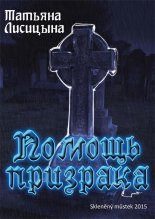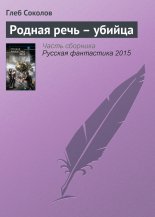Долг: первые 5000 лет истории Гребер Дэвид

Канторович Э. 2014. Два тела короля. Исследование по средневековой политической теологии. Перевод с английского языка М.А. Бойцова и А.Ю. Серегиной. М.: Издательство Института Гайдара.
Кейнс Дж. М. 2002. Общая теория занятости, процента и денег. М.: Гелиос АРВ.
Кропоткин П. 1907. Взаимная помощь как фактор эволюции. СПб.: Товарищество «Знание».
Леви-Стросс К. 2001. Структурная антропология. Перевод В.В. Иванова. М.: Эксмо-Пресс.
Малиновский Б. 2004. Избранное: Аргонавты западной части Тихого океана. М.: Росспэн.
Законы Ману. 1992. Перевод С.Д. Эльмановича. М.: Наука: Ладомир.
Маркс К. 1960–1962. Капитал // Маркс К., Энгельс Ф. Полное собрание сочинений. Т. 23–26. М.: Государственное издательство политической литературы.
Мизес Л. 2000. Человеческая деятельность: Трактат по экономической теории. М.: Экономика.
Морган Л. Г. 1983. Лига ходеносауни, или ирокезов. Перевод Е.Э. Бломквист М.: Главная редакция восточной литературы издательства «Наука».
1934. Древнее общество, или Исследование линий человеческого прогресса от дикости через варварство к цивилизации // Материалы по этнографии. Т. 1. Л.: Институт народов Севера ЦИК СССР.
1934. Дома и домашняя жизнь американских туземцев // Материалы по этнографии. Т. 2. Л.:
Институт народов Севера ЦИК СССР.
Мосс М. 1996. Очерк о даре // Общества. Обмен. Личность: труды по социальной антропологии. Перевод с французского языка А.Б. Гофмана. М.: Восточная литература.
Ницше Ф. 1990. К генеалогии морали // Сочинения: в 2 т. Т. 2. Перевод К. А. Свасьяна. М.: Мысль.
Оппенхейм. 1990. Древняя Месопотамия. Портрет погибшей цивилизации. М.: Наука.
Платон. 1994. Государство // Собрание сочинений. Т. 3. М.: Мысль. (Серия «Философское наследие».)
Плутарх. 1979. О том, что не следует делать долгов. Перевод Г.П. Чистякова // Вестник древней истории. № 2.
1961. Сравнительные жизнеописания. Перевод СП. Маркиша. Т. 1.М.-Л.: Издательство АН СССР. (Серия «Литературные памятники».)
Поланьи К. 2002. Великая трансформация. СПб.: Алетейя.
Псевдо-Дионисий. 1997. О небесной иерархии. Перевод М.Г. Ермаковой. СПб.: Глагол: Издательство РХГИ: Университетская книга.
Салинс М. 1999. Экономика каменного века. М.: О.Г.И.
Страбон. 1994. География. Перевод Г.А. Стратановского. М.: Ладомир.
Рабле Ф. 1966. Гаргантюа и Пантагрюэль. Перевод П. Любимова. М.: Художественная литература.
Самуэльсон П., Нордхаус В. 2006. Экономика: вводный анализ. М.: Вильямс.
Смит А. 2007. Исследование о природе и причинах богатства народов. М.: Эксмо. 1997.
Теория нравственных чувств. М.: Республика.
Фергюсон Н. 2010. Восхождение денег. Перевод А. Коляндра, И.
Файбисовича. М.: Астрель. Фукидид. 1981. История. Перевод Г.А. Стратановского. Л.: Наука. (Серия «Литературные памятники».)
Шумпетер Й. 2004. История экономического анализа: в 3 т. СПб.: Экономическая школа.
Эванс-Причард Э. Э. 1985. Нуэры: Описание способов жизнеобеспечения и политических институтов одного из нилотских народов. М.: Наука.
Ясперс К. 1991. Смысл и назначение истории. Перевод М.И.Левиной. М.: Политиздат.
Abraham, Roy Clive. 1933. The Tiv People. Lagos: Government Printer.
Abu Lughod, Janet. 1989. Before European Hegemony. Oxford: Oxford University Press.
Adamek, Wendi L. 2005. “The Impossibility of the Given: Representations of Merit and Emptiness in Medieval Chinese Buddhism.” History of Religions 45 (2): 135–180.
Adams, Robert McC, С. Lamberg-Karlovsky, William L. Moran. 1974. “The Mesopotamian Social Landscape: The View from the Frontier.” Bulletin of the American Schools of Oriental Research. Supplementary Studies, no. 20, Reconstructing Complex Societies: An Archaeological Colloquium, pp. 1 -20.
Adkins, Arthur W. H. 1972. Moral Values and Political Behaviour in Ancient Greece: From Homer to the End of the Fifth Century. New York: Norton.
Adolf, Helen. 1947. “New Light on Oriental Sources for Wolfram's Parzival and Other Grail Romances.” PMLA62 (2): 306–324.
1957. “Christendom and Islam in the Middle Ages: New Light on 'Grail Stone' and 'Hidden Host.'” Speculum 32(1): 103–115.
Afigbo, Adiele Eberechukwu. 1971. “The Aro of southeastern Nigeria: a socio-historical analysis of legends of their origins.” African Notes 6:31–46.
Aglietta, M., Orlean, A. 1992. La Violence de la monnaie. Paris: Presses Universitaires de France.
1995. Souverainet, lgitimit de la monnaie. Paris: Association d'conomie Financire (Cahiers finance, thique, confiance).
1998. La Monnaie souveraine. Paris: Odile Jacob.
Aglietta, M., et al. 1998. “Introduction.” In: La monnaie souveraine (M. Aglietta & A. Orlean, eds.), pp. 9-31. Paris: Odile Jacob.
Aglietta, M., & Orlean, A. (eds.).
1995. Souverainete, legitimite de la monnaie. Paris: Association d'Economie Financiere (Cahiers finance, ethique, confiance).
Agnew, Jean-Christophe. 1986. Worlds Apart: The Market and the Theater in Anglo-American Thought. Cambridge: Cambridge University Press.
Ahern, Emily. 1973. The Cult of the Dead in a Chinese Village. Stanford: Stanford University Press.
Akiga Sai, B. 1939. Akiga's story; the Tiv tribe as seen by one of its members. Translated and annotated by Rupert East. London, New York, Published for the International African Institute by the Oxford University Press.
1954. “The 'Descent' of the Tiv from Ibenda Hill” (translated by Paul Bohannan.) Africa: Journal of
the International African Institute 24 (4): 295–310.
Akin, David and Joel Robbins. 1998. “An Introduction to Melanesian Currencies: Agencies, Identity, and Social Reproduction”. In Money and Modernity: State and Local Currencies in Melanesia (David Akin and Joel Robbins, editor), pp. 1-40. Pittsburgh: University of Pittsburgh Press.
Alexander, John В. 1938. “A Babylonian Year of Jubilee?” Journal of Biblical Literature 57:55–79.
Allen, N.J.I 998. “The category of substance: a Maussian theme revisited.” In Marcel Mauss: ACentenary Tribute (Wendy James, N. J. Allen, editors), pp. 175–191. London: Berghahn Books.
Altekar, Anant Sadashiv. 1977. State and Government in Ancient India. Delhi: Motilal Banarsidass.
1983. The Position of Women in Hindu Civilization. Delhi: Motilal Banarsidass.
Althabe, Gerard. 1968. “La circulation monetaire dans un village Betsimisaraka.” Tany Gasy 8:35–46.
Ames, Roger. 1994. The Art of Rulership: A Study of Ancient Chinese Political Thought. Albany: State University of New York Press.
Anderson, Perry. 1974. Passages from Antiquity to Feudalism. London: Verso Press.
Angas, Lawrence Lee Bazley. 1937. Slump Ahead in Bonds. New York: Somerset Pub. Co
Arnaud, Daniel. 1973. “La prostitution sacree en Mesopotamie, un mythe historique?” Revue de l'histoire des religions 183:111–115.
Arrighi, Giovanni. 1994. The Long Twentieth Century: Money, Power, and the Origins of Our Times. London: Verso.
2007. Adam Smith in Beijing: Lineages of the Twenty-First Century. London: Verso.
Arrighi, Giovanni, Po-Keung Hui, Ho-Fung Hung and Mark Selden. 2003. “Historical Capitalism, East and West”. In The Resurgence of East Asia: 500,150, and 50 year perspectives. (Giovanni Arrighi, Takeshi Hamashita and Mark Selden, eds.) London: Routledge, pp. 259–333.
Asheri, David. 1969. “Leggi greche sul problema dei debiti.” Studii classici e orientali 18:5-122.
Ashtor, Eliahu. 1972. “Banking instruments between the Muslim East and the Christian West.” Journal of European Economic History 1:559–573.
1976. A Social and Economic History of the Middle East. Berkeley: University of California Press.
Assante, Julia. 2003. “From Whores to Hierodules: The Historiographic Invention of Mesopotamian Female Sex Professionals.” In Ancient Art and Its Historiography (edited A. A Donahue and Mark D. Fullerton), 13–47. Cambridge: Cambridge University Press.
Atwood, Margaret. 2008. Payback: Debt and the Shadow Side of Wealth. London: Bloomsbury.
Auerbach, Erich. 1946 [2003]. Mimesis: The Representation of Reality in Western Literature. Princeton: Princeton University Press.
Aydan, Ertan. 2003. The Peculiarities ofTurkish Revolutionary Ideology in the 1930s: the Oluku version of Kemalism, 1933–1936. Ph.D. dissertation, Bilkent University, Ankara (http://www.thesis.bilkent.edu. tt70002416.pdf).
Aylmer, G. E. 1980. “The Meaning of Property in Seventeenth-Century England.” Past and Present 86:87–97.
Ayyar, P. V. Jagadisa. 1982. South Indian Shrines: Ilustrated. New Delhi: Apex. Bahrani, Zainab. 2001. Women of Babylon: Gender and Representation in Mesopotamia. London: Routledge.
Baker, J. Wayne. 1974. “Heinrich Bullinger and the Idea of Usury.” The Sixteenth Century Journal 5(1): 49–70.
Baker, Jennifer. 2005. Securing the commonwealth: debt, speculation, and writing in the making of early America. Baltimore: Johns Hopkins University Press.
Ballin, Theodore N. 1978. “A Commentary on [Demosthenes] 50.” Doctoral Dissertation: University of Washington, Seattle.
Balmuth, Miriam S. 1967. “The Monetary Forerunners of Coinage in Phoenicia and Palestine”, in Aryeh Kindler,ed., International Numismatic Convention, Jerusalem, 27–31 December 1963: The Patterns of Monetary Development in Phoenicia and Palestine in Antiquity, Proceedings (Shocken, Tel Aviv, pp. 25–32.
1971. “Remarks on the Appearance of the Earliest Coins”, in David G. Mitten, John Griffiths Pedley, and Jane Ayer Scott, eds., Studies Presented to George M. A. Hanfmann (Philipp von Zabern, Mainz), pp. 1–7.
1975. “The Critical Moment: the Transition from Currency to Coinage in the Eastern Mediterra- nean.” World Archeology 6:293–299.
2001. Hacksilber to Coinage: New Insights into the Monetary History of the Near East and Greece. Numismatic Studies, no. 24. New York: Ameican Numismatic Society.
Banaji, Jairus. 2001. Agrarian change in late antiquity: gold, labour, and aristocratic dominance. Oxford: Oxford University Press.
Barasch, Moshe. 1993. Icon: studies in the history of an idea. New York: NYU Press. Barber, Malcolm. 1978. The Trial of the Templars. Cambridge: Cambridge University Press.
Barendse, Rene J. 2002. The Arabian Seas: The Indian Ocean World of the Seventeenth Century. Armonk: M. E. Sharpe.
Barnes, Robert Harrison and Ruth Barnes. 1989. “Barter and Money in an Indonesian Village Economy.” Man (New Series) 24 (3): 399–418.
Barreau, Andre. 1961. “Indian andAncient Chinese Buddhism: Institutions Analogous to the Jisa.” Comparative Studies in Society and History 3 (4): 443–451.
Barth, Frederick. 1969. “Economic Spheres in Darfur.” Themes in Economic Anthropology, ASA Monographs, no. 6, pp. 149–174. London: Tavistock.
Basham, Arthur Llewellyn. 1948. “Harsa of Kashmir and the Iconoclast Ascetics.” Bulletin of the School of Oriental and African Studies, University of London 12 (3/4): 668–699.
Baskind, James. 2007. “Mortification Practices in the Obaku School.” In Essays on East Asian Religion and Culture, Festschrift in honour of Nishiwaki Tsuneki on the occasion of his 65th birthday (edited by Christian Wit-tem and Shi Lishan). Kyoto: Kyoto University.
Bataille, George. 1993. “The Accursed Share Volume III, Sovereignty, Part One: 'What I Understand by Sovereignty”, pp. 197–257. In The Accursed Share, vol. II & III. New York: Zone Books.
Baxter, W. Т. 1989. “Early accounting: The tally and checkerboard.” Accounting Historians Journal 16 (2): 43–83.
Beard, Mary and John Henderson. 1997. “With This Body I Thee Worship: Sacred Prostitution in Antiquity.” Gender & History 9:480–503.
Beattie, John. 1960. Bunyoro: an African Kingdom. New York: Holt, Rinehart and Winston.
Beauchet, Ludovic. 1897. Histoire du droit prive de la Republique athenienne. Paris: Chevalier-Maresoq.
Beaujard, Philippe. 2005. “The Indian Ocean in Eurasian and African World-Systems before the Sixteenth Century.” Journal of World History 16 (4): 411–465.
Begg, David, Stanley Fischer, and Rudiger Dornbusch. 2005. Economics (Eighth Edition). Maidenhead, Berkshire: McGraw-Hill.
Beier, A. Lee. 1985. Masterless men: the vagrancy problem in England 1560–1640. London: Routledge. Bell, Stephanie. 1999. “Do taxes and bonds finance government spending?” Journal of Economic Issues 34: 603–620.
2000. “The role of the state and the hierarchy of money.” Cambridge Journal of Economics 25: 149–163.
Bell, Stephanie and John F. Henry. 2001. “Hospitality versus Exchange: the Limits of Monetary Economics.” Review of Social Economics 54 (2): 203–226.
Bellah, RobertN. 2005. “What is Axial About the Axial Age?” Archives of European Sociology 46 (1): 69–87.
Belo, Jane. 1936. “A Study of the Balinese Family.” American Anthropologist 38(1): 12–31.
Benedetto, Luigi Foscolo. 1994. The Travels of Marco Polo the Venetian (Aldo Ricci's translation). London: Routledge.
Benn, James A. 1998. “Where Text Meets Flesh: Burning the Body as an Apocryphal Practice in Chinese Buddhism.” History of Religions 37 (4): 295–322.
2007. Burning for the Buddha: Self-immolation in Chinese Buddhism. Honolulu: University of Hawaii Press.
Benveniste, Emile. 1963. Indo-European Language and Society (2 volumes). London: Faber & Faber.
1972. “Don et echange dans le vocabulaire indo-europeen.” In Problemes de linguistique generale (Paris: Galimard).
Berndt, Ronald M. 1951. “Ceremonial Exchange in Western Arnhem Land.” Southwestern Journal of Anthropology 7 (2): 156–176.
Binswanger, Hans Christoph. 1994. Money and Magic: A Critique of the Modern Economy in the Light of Goethe's Faust. Chicago: University of Chicago Press.
Birks, Peter. 1985. “The Roman Law Concept of Dominium and the Idea of Absolute Ownership.” Acta Jurid-ica7:l-37.
Bishop, Ryan and Lilian S. Robinson. 1998. Night Market: Sexual Cultures and the Thai Economic Miracle. New York: Routledge.
Blackburn, Robin. 1997. The Making of New World Slavery: From the Baroque to the Modem, 1492–1800. London: Verso.
Blackstone, Sir William. 1827. Commentaries on the laws of England. London: E. Duyckinck. Blanc, Louis. 1839. L'organisation du travail. Paris: Au Bureau de Nouveau Monde. Blau, Peter. 1964. Exchange and Power in Social Life. New York: Wi ley.
Blaxter, Lorraine. 1971. “Rendre service and Jalouisie.” In Gifts and Poison (F. G. Bailey, editor). London: Basil Blackwell, pp. 119–130.
Bleiberg, Edward. 2002. “Loans, Credit and Interest in Ancient Egypt.” In Debt and Economic Renewal in the Ancient Near East (Hudson, Michael and Marc Van de Mieroop, editors), pp. 257–276. Bethesda: CDL Press.
Blickle, Peter. 1977. The Revolution of 1525: The German Peasant's War from a New Perspective. (Thomas Brady and Erik Midelfort, translators.) Baltimore: Johns Hopkins.
Bloch, Marc. 1961. Feudal Society (2 volumes). Chicago: University of Chicago Press.
Bogaert, Raymond. 1966. Les Origines antiques de la banque de depdt. Leiden: Sijthof F.
1968. Banques et banquiers dans les cites grecques. Leiden: Sijthoff.
Bohannan, Laura. 1952. “A Genealogical Charter.” Africa: Journal of the International African Institute 22: 301–315.
1958. “Political Aspects of Tiv Social Organization.” In Tribes Without Rulers (John Middleton and David Tail, editors), pp. 33–66. London: Routledge & Kegan Paul.
1964. Return to Laughter, An Anthropological Novel. (As “Elenore Bowen Smith”). New York: Praeger.
Bohannan, Paul. 1954. “The Migration and Expansion of the Tiv.” Africa: Journal of the International African Institute 24(1): 2-16.
1955. “Some Principles of Exchange and Investment among the Tiv.” American Anthropologist 57:60–67.
1957. Justice and Judgment among the Tiv. London: Oxford University Press.
1958. “Extra-processual events in Tiv Political Institutions.” American Anthropologist 60:1 -12.
1959. “The Impact of Money on an African Subsistence Economy.” Journal of Economic His- tory 19:491–503.
Bohannan, Paul and Laura Bohannan. 1953. The Tiv of Central Nigeria. London: International African Institute.
1968. Tiv Economy. Evanston: Northwestern University Press.
1969. ASource Notebook on Tiv Religion (5 volumes). New Haven: Human Relations Area Files.
Boianovsky, Mauro. 1993. “BQhm-Baewerk, Irving Fisher, and the Term 'Veil of Money'.”History of Political Economy 25 (4): 725–738.
Bokenkamp, Stephen R. 2008. “Fu: Talisman, Tally, Charm.” In The Encyclopedia of Taoism (Fabrizio Prega-dio, editor), pp. 35–38. London: Routledge.
Bolles, John Augustus. 1837. A treatise on usury and usury laws. Boston: James Munroe.
Boon, James. 1975. The anthropological romance of Bali, 1597–1972: dynamic perspectives in marriage and caste, politics, and religion. Cambridge: Cambridge University Press.
Bottero, Jean. 1961. “Desordre economique et annulation des dettes en Mesopotamie a l'epoque paleo-babyl-onienne.” Journal of the Economic and Social History of the Orient 4:113–164.
1992. Everyday Life in Ancient Mesopotamia. (Translated by Antonia Nevill.) Baltimore: Johns Hopkins.
Bourdieu, Pierre. 1965. “The Sentiment of Honor in Kabyle Society.” In J. G. Peristiany, editor, Honour and Shame: the Values of Mediterranean Society. London: Trinity Press, pp. 191–242.
1977. Outline of a Theory of Practice. Cambridge: Cambridge University Press.
1990. The Logic of Practice (Translated by Richard Nice.) Cambridge: Polity Press.
Bowers, Richard H. 1983. “From Rolls to Riches: King's Clerks and Moneylending in Thirteenth-Century England.” Speculum 58(1): 60–71.
Boyer-Xambeu, Marie-Therese, Ghislain Deleplace, and Lucien Gillard. 1994. Private Money & Public Currencies: the 16th Century Challenge. (Azizeh Azodi, translator). Armonk: M. E. Sharpe.
Bradley, Keith R. 1987. “On the Roman Slave Supply and Slavebreeding.” In Classical Slavery (M. I. Finley, editor), pp. 42–64. London: Routledge.
Brady, Thomas A., Jr. 1997. “The Rise of Merchant Empires, 1400–1700. A European Counterpoint.” In The pol itical economy of merchant empires (James D. Tracy, editor), pp. 117–160. Cambridge: Cambridge University Press.
Brand, Paul. 2002. “Aspects of the Law of Debt, 1189–1307.” In Credit and debt in medieval England, C.1180-C.1350(Schofield, PhillippR. and N. J. Mayhew, editors), pp. 19–41. London: Oxbow.
2003. “The Jewish Community of England in the Records of the English Royal Government.” In The Jews in medieval Britain: historical, literary, and archaeological perspectives (Patricia Skinner, editor), pp. 73–96. Woodbridge: Boyden and Brewer.
Braudel, Fernand. 1979. Civilisation materielle, economie et capitalisme, XVe — XVIIIe siecle, 3: Le temps du monde. Paris: A. Colin.
1992. Civilization and Capitalism, 15th-18th Century: The wheels of commerce. Berkeley: Univer- sity of California Press.
1995. The Mediterranean and the Mediterranean world in the age of Philip II (2 volumes). Berkeley: University of California Press.
Brenner, Robert. 2002. The Boom and the Bubble: The US in the World Economy. London and New York: Verso.
Briant, Paul. 2006. From Cyrus to Alexander: A History of the Persian Empire. New York: Eisenbrauns. Brock, Roger. 1994. “The Labour of Women in Classical Athens.” The Classical Quarterly (New Series) 44 (2): 336–346.
Bronkhorst, Johannes. 2007. Greater Magadha: Studies in the Culture of Early India. Leiden: Brill. Brook, Timothy. 1998. The Confusions of Pleasure: Commerce and Culture in Ming China.Berkeley: University of California Press.
Brunt, P. A. 1974. Social Conflicts in the Roman Republic. New York: Norton.
Bryant, Joseph M. 1996. Moral Codes and Social Structure in Ancient Greece: A Sociology of Greek Ethics from Homer to the Epicureans and Stoics. Albany: SUNY.
Bcher, Karl. 1907. Industrial Evolution. (S. Morley Wickett, trans.) New York: Holt.
Buckland, William Warwick. 1908. The Roman Law of Slavery. Cambridge: Cambridge University Press.
Buckler, W. H. 1896. The Origin and History of Contract in Roman Law down to the End of the Republican Period. London: C. J. Clay & Sons.
Bulliet, Richard W. 1979. Conversion to Islam in the Medieval Period: An Essay in Quantitative History. Cambridge: Harvard University Press.
Burton, Sir Richard F. 1934. The Book of a Thousand Nights and a Night (6 volumes). New York: Heritage Press.
Butrica, James L. 2006. “Some Myths and Anomalies in the Study of Roman Sexuality.” In Same-Sex Desire and Love in Greco-Roman Antiquity and in the Classical Tradition of the West (Beert C. Verstraete and Vernon Provencal, editors), pp. 209–270. Berkeley: University of California Press.
Byrne, Frances. 1971. “Tribes and Tribalism in early Ireland.” Eriu 22:128–166.
1973. Irish Kings and High Kings. London: Batsford.
Caffentzis, Constantine George. 1989. Clipped Coins, Abused Words, and Civil Government: John Locke's Phi losophy of Money. New York: Autonomedia.
Caims, Francis. 1991. “The' Laws of Eretria' (“IG” XII. 9 1273 and 1274): Epigraphic, Legal, Historical, and Political Aspects.” Phoenix 45 (4): 296–313.
Calhoun, George W. 1934. “Classes and Masters in Homer.” Classical Philology 29: 192–206,301-316.
Cambiano, Guiseppe. 1987. “Aristotle and the Anonymous Opponents of Slavery.” In Classical Slavery (M.I. Finley, editor), pp. 28–53. London: Frank Cass.
Campbell, John Kennedy. 1964. Honour, family and Patronage: A Study of Institutions and Moral Values in a Greek Mountain Community. Oxford: Oxford University Press.
Cannan, Edwin. 1921. “Early History of the Term Capital.” Quarterly Journal of Economics 35 (3): 469 481.
Cardascia, Guillaume. 1959. “L'adoption matrimonlale a Babylone et a Nuzi.” Revue historique de droit franais et etranger 37:1-16.
1969. Les lois assyriennes. Litteratures Anciennes du Proche-Orient 2. Paris: Cerf.
Cartier, Michel. 1988. “Dette et propriete en Chine.” In Lien de Vie: Noued Mortel: les representations de la dette en Chine, au Japan, et dans le monde Indien (Charles Malamoud, editor), pp. 17–29. Paris: Editions de 1'Ecole des Hautes Etudes en Science Sociales.
Case, Karl E., Ray C. Fair, Manfred Gartner, and Ken Heather. 1996. Economics. London: Prentice Hall.
Caskey, John P. 1994. Fringe Banking: Check-Cashing Outlets, Pawnshops, and the Poor. New York: Russell Sage Foundation.
Cerny, Jaroslav. 1954. “Prices and wages in Egypt in the Ramesside period.” Cahiers d'histoire mondiale 4: 903–921.
Chakravarti, Uma. 1985. “Of dasas and karmakaras: servile labor in ancient India.” In Chains of Servitude: Bondage and Slavery in India (Utsa Patnaik, Manjari Dingwaney, editors), pp. 35–75. Reno: University of Nevada Press.
Chapman, Anne. 1980. “Barter as a Universal Mode of Exchange.” L'Homme 22 (3): 33–83.
Charles-Edwards, Т. M. 1978. “Honour and Status in Some Irish and Welsh Prose Tales.” Eriu 29: 123–141.
1993. Early Irish and Welsh kinship. Oxford: Oxford University Press.
Chatterjee, Heramba. 1971. The Law of Debt in Ancient India. Calcutta: Sanskrit College.
Chattopadhyaya, Debiprasad. 1994. Carvaka / Lokayata: An Anthology of Source Materials and Some Recent Studies. New Delhi: Mrinal Kanti Gangopadhyaya.
Chaudhuri, Kirti N. 1985. Trade and Civilisation in the Indian Ocean: An Economic History from the Rise of Islam to 1750. Cambridge: Cambridge University Press.
1990. Asia Before Europe: Economy and Civilization of the Indian Ocean from the Rise of Islam to 1750. Cambridge: Cambridge University Press.
Chauhan, Gian Ghand. 2003. An Economic history of early medieval northern India. New Delhi: Atlantic Publishers.
Ch 'en, Kenneth K.S.I 964. Buddhism in China: A Historical Survey. Princeton: Princeton University Press. Choksy, Jamsheed К. 1988. “Loan and sales contracts in ancient and early medieval Iran.” Indo-Iranian Jour-nal31(3): 191–218.
Cipolla, Carlo M. 1967. Money, Prices and Civilisation in the Mediterranean World: Fifth to Seventeenth Centuries. Princeton: Princeton University Press.
Clanchy. M. T. 1993. From memory to written record, England 1066–1307. Oxford: Blackwell.
Clarence-Smith, William G. 2008. “Islamic Abolitionism in the Western Indian Ocean from с. 1800.” Presented at the conference, Slavery and the Slave Trades in the Indian Ocean and Arab Worlds: Global Connections and Disconnections, Yale University, November 7–8,2008. http://www.yale.edu/glc/indian7ocean/ ciarence7smith.pdf.
Clavero, Bartolome. 1986. “The jurisprudence on usury as a social paradigm in the history of Europe.” In Historische Soziologie der Rechtswissenschaft(Erik Volkmar Heyen, editor), pp. 23–36. Frankfurt: Vittorio Klostermann.
Codere, Helen. 1950. Fighting with Property: A Study of Kwakiutl Potlatching and Warfare 1792–1930. Monograph 18. New York: American Ethnological Society.
Cohen, David. 1987. “Seclusion, separation and the status of women in classical Athens.” Greece and Rome 36(1): 1-15.
Cohen, Edward E. 1995. Review of Lending and Borrowing in Ancient Athens', Bryn Mawr Classical Review 3 (4) (http://hegel.lib.ncsu.edu/stacks/serials/bmcr/bmcr-v3n04-cohen-lending).
Cohn, Norman. 1972. The pursuit of the millennium: revolutionary millenarians and mystical anarchists of the Middle Ages. New York: Oxford University Press.
Cole, Alan. 1998. Mothers and Sons in Chinese Buddhism. Palo Alto: Stanford University Press.
Coleman, Janet. 1985. “Dominium in 13th and 14th Century Political Thought and its 17th Century Heirs. John of Paris and Locke.” Political Studies 33:73-100.
1988. “Property and Poverty.” In The Cambridge History of Medieval Political Thought, c. 1350–1450 (J. H. Barnes, editor), pp 607–648. Cambridge: Cambridge University Press.
Collins, Randall. 1986. Weberian Social Theory. Cambridge: Cambridge University Press.
1989. The Sociology of Philosophies: A Global Theory of Intellectual Change. Cambridge: Harvard University Press.
Cook, Robert Manuel. 1958. “Speculations on the Origins of Coinage.” Historia 7:257–267.
Cooper, Frederick. 1979. “The Problem of Slavery in African studies.” Journal of African History 20: 103–125.
Cooper, Jerrold S. 1986. Sumerian and Akkadian Royal Inscriptions, Volume 1: Presargonic Inscriptions. New Haven: American Oriental Society.
2002. “Virginity in Ancient Mesopotamia.” Compte rendu, Rencontre Assyriologique Internation- al?: 91-112.
Cooper, Melinda. 2006. “The Unborn Born Again: Neo-Imperialism, the Evangelical Right and the Culture of Life.” Postmodern Culture (PMC) 17.1: #3.
2008. Life as surplus: biotechnology and capitalism in the neoliberal era. Seattle: University of Washington Press.
Cornell, Tim. 1995. The beginnings of Rome: Italy and Rome from the Bronze Age to the Punic Wars (c. 1000-264 ВС). London: Routledge.






